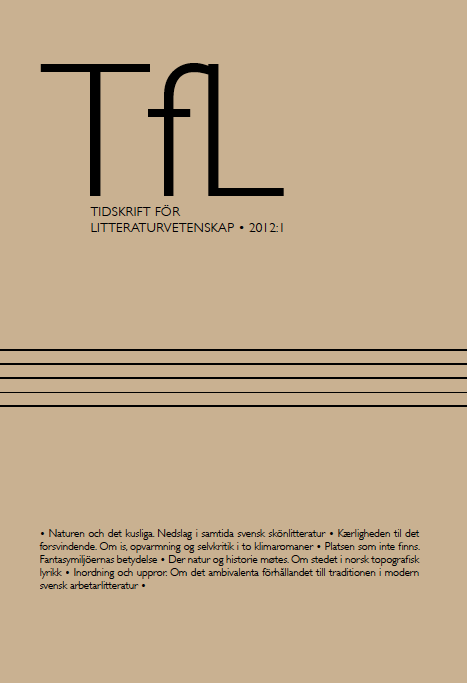Kærligheden til det forsvindende
Om is, opvarmning og selvkritik i to klimaromaner
DOI:
https://doi.org/10.54797/tfl.v42i1.11716Nyckelord:
Climate-Change, Love of Nature, Eco-Philosophy, Cultural Critique, Martin HeideggerAbstract
Love for the Disappearing: On Ice, Warming and Self-criticism in two Climate-Change Novels
This article focuses on the configuration of the love of ice in two novels from the emergent field of climate-change fiction: The Ice Lovers (2009) by the Canadian author Jean McNeil, and Eis Tau (2011) by the Austrian author Ilija Trojanow. Both these works end with the suicide of the main character; a commonality which serves as the point of departure for this article. Additionally, the main characters’ love of ice is explored as a means of being-in-the-world, as opposed to the being-in-the-world of a humanity that is generally depicted as treating nature without love, i.e., unsustainably. In this regard the novels are also read as a site of self-criticism (or anthropocritique). In its pursuit of these two contrasting forms of being-in-the-world, the article draws heavily on the philosophy of Martin Heidegger. The ecological aspects of Heidegger’s philosophy have been firmly criticized by eco-critics and philosophers alike. However, as this article makes clear, Heidegger’s line of thought can still be detected in current writing on climate change.
Nedladdningar
Downloads
Publicerad
Referera så här
Nummer
Sektion
Licens
Författaren/författarna behåller copyright till verket






